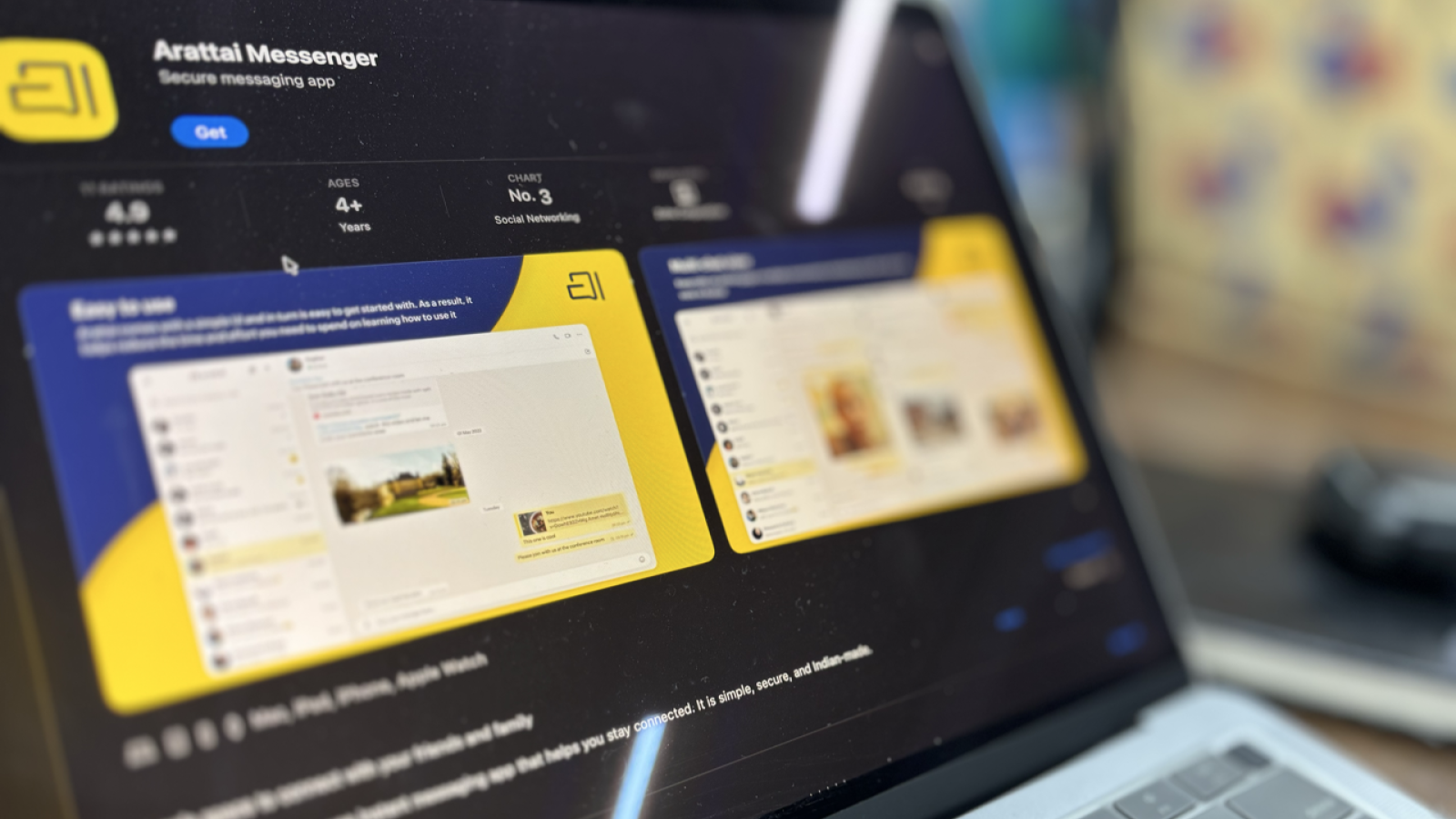Zoho’s Arattai sparks sudden interest but can it rival competition and lead to sustained usage?
By Ishan Patra
Copyright yourstory

Arattai, a cross platform instant messaging and voice over IP service created by Zoho Corporation, is creating quite a buzz.
The app, which offers one-to-one and group chats, voice and video calling, file sharing, stories and channels, is presented as an Indian alternative to global messaging platforms, and is available for Android and iOS users and on desktop operating systems.
To be clear, Arattai is not a new launch. It was launched way back in January 2021. However, it has surged in popularity recently due to a push by the government for Made-in-India apps and a larger consumer interest in domestic alternatives to WhatsApp.
Zoho built Arattai from its experience with communication and collaboration tools and positioned it as a simple, private messaging option for friends and family. Arattai, in Tamil, means ‘casual talk’ or ‘chit-chat’.
While Arattai’s homegrown has led to a surge in downloads, it remains to be seen if it can lead to sustained usage. The app also faces an uphill battle against competitors such as WhatsApp, Telegram, and Signal.
Gaining traction
Two recent developments explain the renewed attention around Arattai. First, prominent government figures have publicly promoted Arattai and other Indian software as part of a larger push to adopt homegrown technology. This has raised public awareness and produced a surge of downloads and visibility on app stores.
“I am incredibly proud to see that the Hon’ble Minister for Railways, Information & Broadcasting, Electronics & Information Technology, Shri. Ashwini Vaishnaw and Minister of Education, Shri. Dharmendra Pradhan, have announced their decision to adopt Zoho for government use and their personal productivity needs,” Kumar Vembu, Co-founder of Zoho (AdventNet), and Founder and CEO of Mudhal Partners, said in a blog post.
Second, public interest in local alternatives and the need for privacy have made users more willing to try new messaging apps.
Together these factors have led to user discovery, pushing Arattai up the rankings on app stores in India. It is currently ranked number three among social networking apps on Apple’s App Store. On Google Play store, the app has over 500,000 downloads, with over 20,000 reviews.
“We have faced a 100x increase in Arattai traffic in 3 days (new sign-ups went vertical from 3K/day to 350K/day). We are adding infrastructure on an emergency basis for another potential 100x peak surge. That is how exponentials work,” Sridhar Vembu, Founder and Chief Scientist of the Zoho Corporation, said in a post on X.
Kumar Vembu breaks down Zoho’s approach on the company’s Long Game blog. He celebrates steady, long-term investment and describes the company’s progress as patient execution beating aggressive capital. He also notes that recent government interest in Zoho reflects a milestone for the business and its long-term vision.
Will users switch?
Feature-wise Arattai covers the basic expectations users have of modern messengers. It offers messaging, media sharing, voice and video calls, and desktop parity so switching feels familiar.
In terms of scale, Arattai is much smaller than WhatsApp and also trails established alternatives such as Telegram and Signal with respect to network effects and daily active users. Here Arattai faces the classic challenge: users will consider switching only when their contacts do the same.
Encryption and privacy on Arattai is a mixed bag. Voice and video calls are currently end-to-end encrypted on the app. Zoho says end-to-end encryption for messages is a priority and its team is actively working on it. For people whose primary concern is end-to-end encryption in messages, dedicated privacy-first apps still hold the edge.
What works, and what has to be worked on
Zoho’s backing and reputation make Arattai credible from an engineering and operational perspective. Zoho is a long established software company with a public commitment to user privacy and a track record of building business and collaboration products. Thus, Zoho’s experience will help with product refinement and offer multi-platform support.
Arattai also emphasises being light and usable on low-end phones and on desktop. This helps reach users who need a single app that works across devices and on limited hardware. The app’s familiarity in features reduces friction for those testing a switch from incumbents.
Also, its domestic origin and the current political and cultural context in India have given Arattai rapid exposure and sudden traction, which few new entrants receive. This momentum can help Zoho shorten the time needed to gain users and build communities inside the app.
Meanwhile, network effect is a challenge. Until a user’s friends, family and/or business contacts adopt Arattai in meaningful numbers, the incentive to migrate will be limited. Technical gaps also have to be bridged. Voice and video calls are end-to-end encrypted but message-level encryption is still being rolled out. Some users are likely wait for a fully mature, audited message encryption before switching apps.
Moreover, a sudden spike in demand can stress any new service, and Arattai may not be an exception. Users will want stability as the service scales.
Pointing out the infrastructure layer, Sridhar Vembu remarked, “As we add a lot more infrastructure, we are also fine tuning and updating the code to fix issues as they arise. We have all-hands-on-deck working flat out.”
“As a matter of fact, we had planned on a big release by November, with a lot of the features you expect, a huge capacity addition and a marketing push. And then it suddenly went vertical! We have a lot more planned for Arattai, please give us some time. Thank you for your patience and support!” he added.
(Edited by Swetha Kannan)



